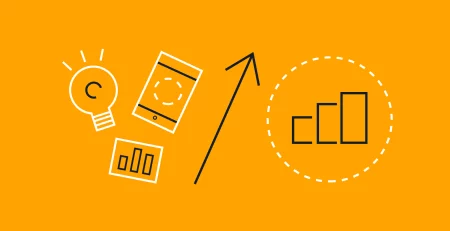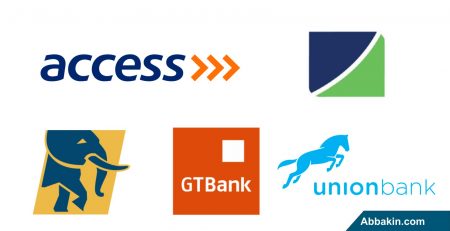eCommerce Market in Nigeria: Size, Trends, Forecast
In this article, we’ll explore the size, trends, and factors influencing the eCommerce landscape in Nigeria. The eCommerce market in Nigeria is experiencing rapid growth, driven by increased internet penetration, rising smartphone usage, and a young, tech-savvy population. As one of the largest economies in Africa, Nigeria offers significant opportunities for eCommerce businesses.
If you are stating an online business in Nigeria, or you’re investing in existing business and now wants to go global; here is the Nigeria ecommerce market size and trends you need to know. We leading internet marketing company in Nigeria that can help you design a professional eCommerce website, grow your business and increase your online sales through social media marketing, corporate branding and search engine optimization strategies and more.
eCommerce Market in Nigeria: Size, Trends, Forecast:
Size of the Nigerian eCommerce Market
This post contains indent statistics of the online marketplace in Nigeria with data from reliable sources and trade institutions. Nigeria is a West African country with a population of over 205 million people. The journey of e-commerce businesses in Nigeria have tremendous impacts on retail business transactions and have influenced the nation economy greatly.
The eCommerce sector in Nigeria has grown substantially over the past decade. According to Statista, Nigeria’s eCommerce revenue is projected to reach approximately $7 billion in 2024, with an annual growth rate (CAGR) of 13.7% from 2020 to 2024. This growth is driven by increasing consumer adoption of online shopping and the expansion of online retailers across various sectors.
Nigeria’s population, which exceeds 200 million people, provides a large potential customer base for online businesses. Urbanization, particularly in cities like Lagos, Abuja, and Port Harcourt, has also fueled eCommerce growth, as urban dwellers smartphones are more likely to have access to internet services and modern payment systems.
You May Like: Top 20 Ecommerce Websites in Nigeria Online Marketplace
Internet and Mobile Penetration
Internet access is a key driver for the eCommerce market in Nigeria. According to the Reports from the Nigerian Communications Commission (NCC), Nigeria has over 150 million active internet users, many of whom access the web via mobile devices. Mobile broadband subscriptions are on the rise, with smartphones being the primary tool for internet access in the country.
This increase in the number of smartphone users in Nigeria is because 62 per cent of Nigerian population are youths – which represent a potential audience as they are highly connected on the internet via the usage of mobile phones.
The rise of affordable smartphones has further accelerated the growth of mobile eCommerce (mCommerce), enabling more people to shop online using mobile apps and websites. This trend has led to increased sales of goods such as fashion, electronics, and beauty products through online platforms.
Popular eCommerce Platforms in Nigeria
Several key players dominate the Nigerian eCommerce landscape, with platforms like Jumia, Konga, and Jiji leading the market. These platforms offer a wide range of products, from electronics to fashion and groceries, catering to Nigeria’s growing middle class.
- Jumia: Often referred to as the “Amazon of Africa,” Jumia is one of the largest online marketplaces in Nigeria. It offers products across various categories, including electronics, fashion, and groceries. Jumia also provides a logistics service that enables merchants to ship products across the country efficiently.
- Konga: Konga is another leading eCommerce platform in Nigeria, known for its strong logistics network and fast delivery service. The company offers a diverse range of products, including home appliances, fashion, and electronics.
- Jiji: Focuses on used items like electronics, cars, and lifestyle products. It caters to Nigeria’s youth market and has gained popularity through classified ad marketing and targeted campaigns.
These platforms are supported by efficient logistics systems, digital payment solutions, and user-friendly interfaces (website), which help to build consumer trust and drive sales.
Don’t Miss: 15 Online Payment Gateways in Nigeria and Africa for eCommerce
Payment Methods and Financial Inclusion
The availability of diverse payment options has contributed significantly to the growth of eCommerce in Nigeria. Consumers can now pay for goods and services using debit/credit cards, mobile wallets, and bank transfers, with companies such as Paystack, Flutterwave, Interswitch and others providing secure online payment gateways.
Mobile payment solutions, such as OPay and Paga, have also seen widespread adoption, particularly in urban areas. These platforms enable users to make online purchases and pay bills using their mobile phones. The rise of mobile payment solutions has helped improve financial inclusion, allowing more people to participate in the digital economy.
Despite these advancements, cash on delivery (COD) remains a popular payment method, as many Nigerians still prefer to physically inspect products before making payments.
Challenges Facing the Nigerian eCommerce Market
While the Nigerian eCommerce market presents significant opportunities, it is not without its challenges. Some of the major obstacles include:
- Logistics and Infrastructure: Nigeria’s road infrastructure and logistics networks remain underdeveloped, leading to delays in the delivery of goods, especially in rural areas. However, companies like GIG Logistics, GUO and Kwik Delivery are helping to improve the delivery landscape.
- Trust Issues: Many Nigerians are wary of online shopping due to concerns about product quality, fraud, and payment security. To overcome this, eCommerce platforms have introduced measures such as buyer protection policies, return options, and secure payment gateways to build consumer trust.
- Limited Internet Access: While urban areas benefit from high internet penetration, rural regions still face challenges with internet access, limiting the reach of eCommerce businesses.
Related Post: 10 Problems Facing Ecommerce Business in Nigeria
Trends Shaping the eCommerce Market in Nigeria
Several trends are shaping the future of eCommerce in Nigeria, including:
- Mobile Commerce (mCommerce): As smartphone usage grows, so does mobile commerce. Many Nigerians now prefer to shop via mobile apps, leading eCommerce platforms to optimize their sites and apps for mobile users. As a result, mobile-friendly ecommerce website designs, fast-loading pages, and secure payment integrations are becoming essential.
- Social Commerce: Social media platforms like Instagram, Facebook, and WhatsApp are increasingly being used by businesses and individual vendors to sell products directly to consumers. This trend, known as social commerce, is particularly popular among small and medium-sized enterprises (SMEs) in Nigeria looking to reach a wider audience.
- Personalization and AI: The use of artificial intelligence (AI) and data analytics is enabling eCommerce platforms to offer personalized shopping experiences. Businesses are leveraging customer data to recommend products, offer discounts, and tailor marketing campaigns based on individual preferences.
- Omnichannel Strategies: Many retailers are adopting omnichannel strategies that integrate online and offline experiences. For instance, some eCommerce platforms allow customers to place orders online and pick them up at physical stores, offering greater convenience.
- Cross-Border Trade: Nigeria’s eCommerce platforms are increasingly engaging in cross-border trade, selling goods to customers in other African countries and beyond. This trend is facilitated by improvements in logistics and payment systems, helping Nigerian businesses expand their reach.
You May Like: 70% Nigerians Prefer Cash on Delivery to Online Payment
The Future of eCommerce Business in Nigeria
The future of eCommerce in Nigeria is promising, with continued growth expected in the coming years. The Nigerian government has also recognized the potential of eCommerce as a driver of economic growth and job creation. Initiatives such as the National Digital Economy Policy and Strategy aim to support the development of digital infrastructure, improve internet access, and create a more favorable environment for eCommerce businesses.
As more Nigerians gain access to the internet and mobile devices, the demand for online shopping is likely to increase. eCommerce businesses that invest in robust logistics systems, secure payment systems, and consumer trust-building strategies will be well-positioned to capitalize on this growing market.
Why Investing in eCommerce Business in Nigeria?
By 2018, the e-Commerce market in Nigeria was worth over $13 billion; according to a report by London based Economist Intelligence Unit (EIU). Experts in the Nigerian financial service sector also estimated that Nigeria’s e-commerce market value could rise to $50 billion (N15.45 trillion) over the next 10 years.
According to Statista, the eCommerce Market in Nigeria is projected to grow by 9.34% (from 2024-2029) resulting in a market volume of US$10.00bn in 2029. The National Bureau of Statistics (NBS) had predicted that the e-commerce sub-sector was expected to contribute about 10 per cent, of a projected N10 trillion, to the nation’s Gross Domestic Product (GDP).
With the increasing penetration of internet in Nigeria and across Africa; the e-commerce sub-sector is a huge market and the sales volume is bound to continue progressing in the coming years. Investors and business leaders are encourage to participate in this ever evolving marketplace.
The potential factors behind a thriving e-commerce market in Nigeria are the improved mobile internet penetration and youth population. Ecommerce trade activity provides a cost-effective method of connecting producers and merchants directly to online buyers.
Therefore if you are researching about the Nigerian ecommerce market size and trends; then we are glad to inform you that time is now ripe for you to market your great products to the Nigerian buyers communities through the global revolution of e-Commerce or electronic-Commerce.
Nigeria Ecommerce Vs Customers Trust
With the effect of Covid 19 pandemic, the demand on e-Commerce products and services are still changing; and the supply chain is also evolving. Customers are now asking ‘why they should buy from many Nigerian stores and why they should order your products?’ The industry giants, such as Jumia Nigeria, Konga Online Store, Jiji etc., are leading the African charge to boost the continent’s growth of online based retail businesses.
Nevertheless, for e-commerce to attain its full potential in Nigeria, physical infrastructural issues, logistics challenges, trust, as well as e-fraud challenges need to be tackled by well planed government and stakeholders policies and strategies. Also; the insecurity challenges that pose danger and delay to the movement of goods and passengers across the country is threatening the shopping experience, delivery of ordered products and the e-commerce industry in Nigeria.
Related Post: Why E-commerce Business is Thriving in Nigeria
Insights from Jumia and Konga Online Stores
According to Konga, the e-company has a customer pool of 750,000 online shoppers. However, there are only 200,000 active customers. Though the rural population accounts for only 10% of its total active customers, this could be due to low internet penetration and poor electricity supply in rural areas in Nigeria; as well as low income levels in the current economic downturn.
A report released by Jumia revealed that 70 percent of Nigerians preferred the cash on delivery option to online payment methods (like the credit/debit cards payment, and the mobile money option). Despite the Jumia Company operating in 10 other African countries, analysts pointed out that the e-commerce industry has also witnessed reduced patronage at the back of the current economic situations.
The Economist Intelligence Unit (EIU) also noted that the rising affluence of e-commerce is not causing Africans, especially Nigerians, to abandon the traditional shopping methods entirely; but it is helping an inspirational consumer base nation to broaden its tastes. Again, while Jumia is able to deliver to less accessible places or locations in Nigeria, sourcing goods from local shops is still a challenging task.
Final Thoughts: Nigeria Ecommerce Market Size and Trends
The Nigerian eCommerce market is on an upward trajectory, driven by factors such as increasing internet penetration, mobile adoption, and a growing middle class. While challenges such as logistics and trust issues persist, the opportunities for growth are immense.
eCommerce platforms that can navigate these challenges and adapt to consumer preferences will continue to thrive in this dynamic market. As the eCommerce landscape evolves, businesses in Nigeria must stay agile and innovative to meet the demands of their customers and capitalize on the digital economy.
As a full service digital marketing agency based in Lagos Nigeria. We work with startups and eCommerce companies in building user-friendly ecommerce websites, creating ecommerce marketing and advertising campaigns, driving website traffics though SEO and PPC advertising, generating leads and converting site visitors into customers.
Contact us now for free consultation. We can develop online shopping systems, integrate online payment gateways and craft effective ecommerce marketing strategies to suit your kind of business or niche.











Comments (5)
please what is the total number of online stores in nigeria
Where you able to get this answer.
Please where can the information regarding the total number of online stores be obtained?
We provided the list of top 20 ecommerce websites and online stores in Nigeria
Online in Nigeria has gone to the next level. Kudos to admin for this lovely topic well treated for easy understanding